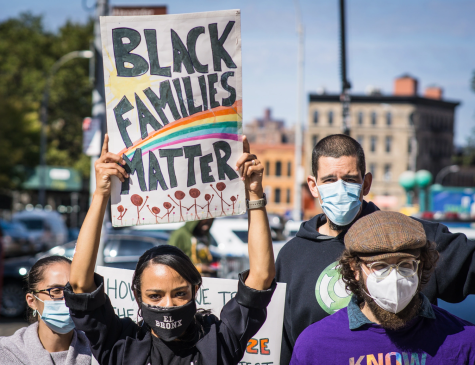Religious groups on the East Bay campus
October 25, 2018
The presence of religious groups in the area in front of the Student Union has grown to such an extent that some students have begun to refer to it as “harassment square.” Whether it be a Jehovah’s Witness or an evangelical Baptist shouting out bible verses, many students without a religious affiliation have no choice but to ignore and walk by as quickly as possible.
With many students considering themselves to be religiously unaffiliated, there is a large question as to why so many religious groups are accepted on college campuses. For much of the late 20th century, public college campuses focused primarily on academics while keeping religion out of the mix, as it was believed to be a private matter for students. But today, most public college campuses offer a large array of religious organizations for both affiliated and unaffiliated students.
“The presence of religious groups in the area in front of the Student Union has grown to such an extent that some students have begun to refer to it as ‘harassment square.’”
This drastic change in religious engagement offers many questions of whether or not it benefits students on campus, and if there are any educational gains in general by this difference. Being religious is a deeply personal thing, and so too is how religious groups on campus affect the rest of us as individuals.
Some students, such as Sonia Perdigo, are religious themselves, but would prefer religion not be solicited in public on campuses. “I enjoy sharing our common beliefs, but when it reaches the point of insisting to join their bible study or what not, it makes the situation awkward.”
Others, such as Justin Brown, shut them down before a conversation can even begin: “I just tell them I don’t believe in God so that they could leave me alone because after a while it becomes super annoying. I’m just trying to get to where I’m going without always being bothered.”
Logan Key finds it more effective to simply avoid them: “…sometimes when I don’t want to be bothered I just try to avoid them because they definitely will hassle you if you let them. So, being that I’m not religious, I try to avoid them as much as possible to save us all some time.”
Even in the most accepting of student responses, such as that of Cristy Robinson, there is at most toleration, not enjoyment of these groups or open-armed acceptance: “I honestly don’t mind them because I haven’t really encountered them very often, maybe like two times. However, I am a Christian so I don’t see there being a problem with other students just trying to spread the gospel.”
“Their purpose on campus is clearly to increase their numbers and get new members. The nature of their recruitment methods, however, are largely off putting to their target audience.”
An increase in conservatism across America and general acceptance of the open exchange of ideas on campuses are likely the main reasons for this religious revival. It certainly offers open discussion and debate on a variety of topics, and because so many students are no longer of any specific religious affiliation, it allows them to encounter ideas very different from their own—which is part of the collegiate experience.
The open nature of it being religious ‘solicitation’, however, is likely bad for all involved. On the one hand, the students polled above clearly do not enjoy that aspect of it, going so far as to outright avoid the groups entirely.
This leads into the other detriment, which pertains to the religious groups themselves. Their purpose on campus is clearly to increase their numbers and get new members.
The nature of their recruitment methods, however, are largely off putting to their target audience. Both of these things taken together begs the question of whether they should be doing this at all, as they’re clearly polarizing the people they seek to persuade away from their cause, which would seemingly defeat the purpose of these public religious revivals on campus at all.
When it comes to the open exchange of viewpoints and ideas, the opening of religious discourse on the CSU East Bay campus can be a wonderful and thought provoking thing. The answer to whether it benefits anyone in its current form of mass soliciting students to convert to a particular religion, however, is clearly no.
If anything, it is effectively souring student opinions of religion at a rapid pace.















